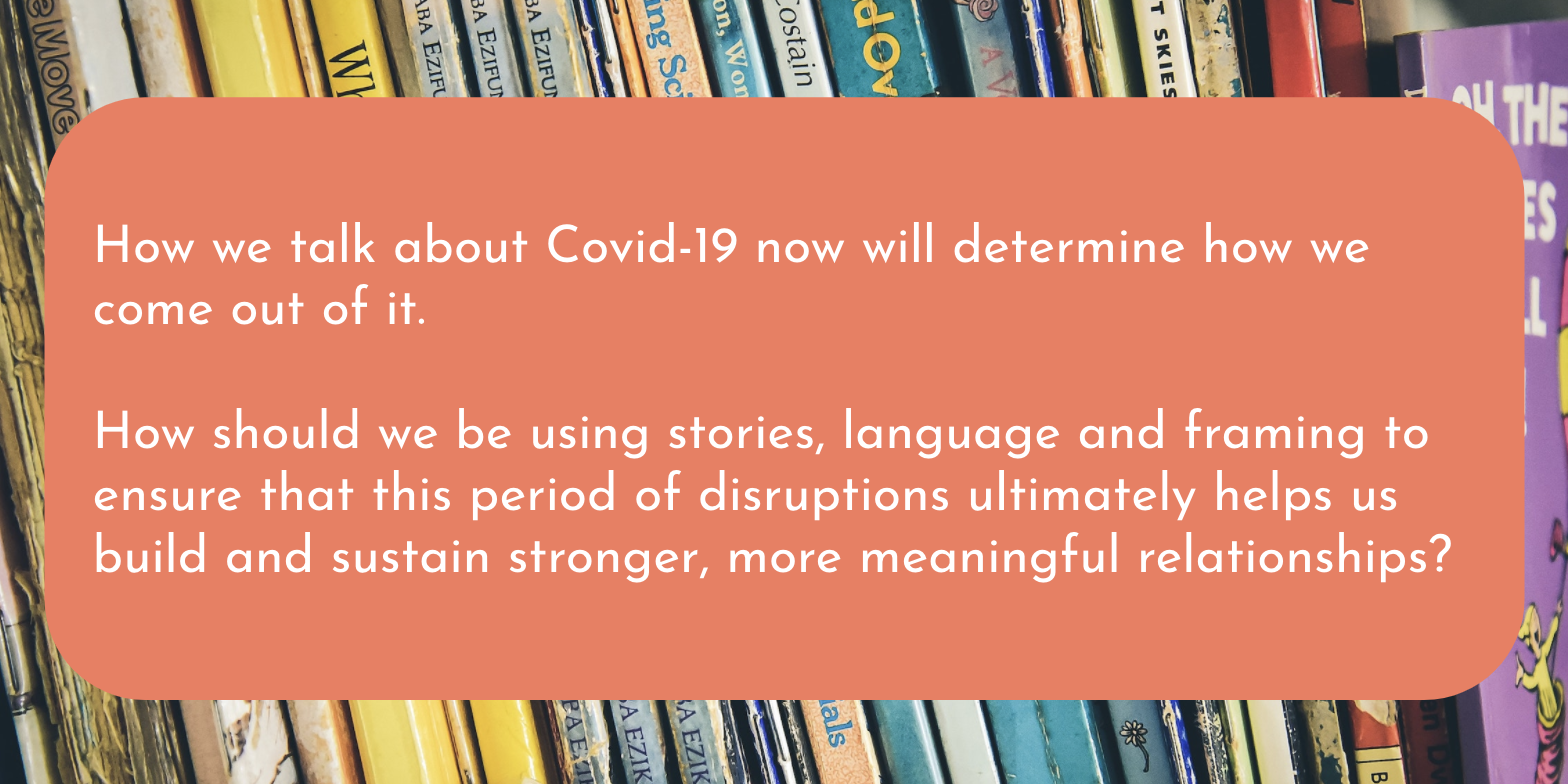In this first Sighting, we reflect on the role that stories, language and framing will play as we decide, as a society, how to rebuild.

Observation
The stories we tell now about how society is responding to COVID-19 will shape how we look back on this time and how we move forward as a society.
Questions we’ve been asking ourselves
- How do we promote stories of connection and support without silencing important voices?
- How do we spread these stories beyond our own ‘echo chambers’, generating the critical mass that is needed to provoke change?
Perhaps then it is not surprising that we are almost equally divided in our opinions on the state of society; You Gov found that, at the end of the first full week of lockdown 51% feel less positive about society than they did before the crisis began.
Surfacing and spreading positive stories
Iona Lawrence has been leading work on The Connection Coalition to help to spread “stories of connection”. Iona describes the Coalition as “a cross-sector partnership designed to ensure that physical distancing doesn’t create a crisis of disconnection, enforced social isolation and loneliness now and in the future.” The Coalition will “collect and share stories of connection in all its different forms to share with wider audiences”
Observation
The language that we use to tell the stories of the response needs to be carefully considered. New words are needed to describe new responses.
Questions we’ve been asking ourselves
- What language should we be using to pave the way for a connected, cohesive transition out of this period?
- What language should we be avoiding?
- “Re-neighbouring” is capturing the dramatic change in behaviours in many neighbourhoods and
- “Caremongering”, first coined in Canada, describes the antithesis of scaremongering.
Useful resources to help us think about framing
In this practical and uplifting blog Alice Sachrajda says “just as every story has a beginning, middle and an end, so does the pandemic. But the difference is, this is a story that hasn’t been written yet. It’s an open book and we all have a role to play in shaping the story that unfolds”.
There are also more great “Tips for framing covid19” from Ella Saltmarshe. And the Frameworks Institute are “pulling guidance from twenty years of framing research and practice to help advocates and experts be heard and understood in a time of global crisis” in a series of briefings.
Julia Unwin writes well on language and other aspects of our response to the crisis. She also contributed to this Compass podcast alongside Jennifer Nadel and David Robinson.
And finally, a round of applause
We couldn’t let the week go by without acknowledging the Applause for Key workers not least because it is the kind of moment that won’t make more than a footnote in any retrospective account but has felt significant to several of our contributors. It is an expression of gratitude, also a rare opportunity to escape from captivity at the end of a tedious day, but both objectives could be met without others. The Applause represents something more, something bigger than ourselves and suggests a deep yearning for connectivity, not just in the UK but across the world. Sometimes we don’t notice things until we don’t have them.
Thanks to this week’s contributors
The Observatory is a voluntary collaboration led by the Relationships Project. We are dependent on the eyes and ears of our observers and partner organisations and we need more.
The voices heard this week include Linda Woolston, Richard McKeever, Julian Dobson, Alice Sachrajda, and Iona Lawrence.
